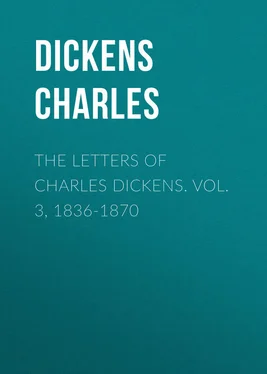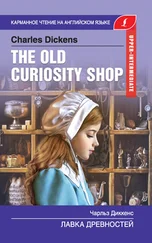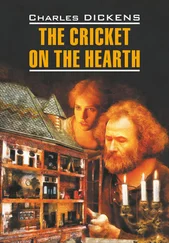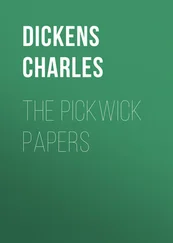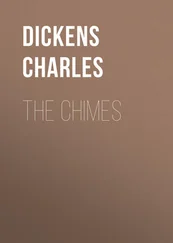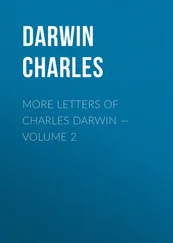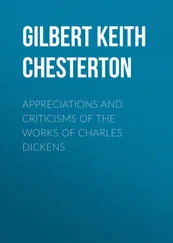Чарльз Диккенс - The Letters of Charles Dickens. Vol. 3, 1836-1870
Здесь есть возможность читать онлайн «Чарльз Диккенс - The Letters of Charles Dickens. Vol. 3, 1836-1870» — ознакомительный отрывок электронной книги совершенно бесплатно, а после прочтения отрывка купить полную версию. В некоторых случаях можно слушать аудио, скачать через торрент в формате fb2 и присутствует краткое содержание. Жанр: foreign_antique, foreign_prose, на английском языке. Описание произведения, (предисловие) а так же отзывы посетителей доступны на портале библиотеки ЛибКат.
- Название:The Letters of Charles Dickens. Vol. 3, 1836-1870
- Автор:
- Жанр:
- Год:неизвестен
- ISBN:нет данных
- Рейтинг книги:4 / 5. Голосов: 1
-
Избранное:Добавить в избранное
- Отзывы:
-
Ваша оценка:
- 80
- 1
- 2
- 3
- 4
- 5
The Letters of Charles Dickens. Vol. 3, 1836-1870: краткое содержание, описание и аннотация
Предлагаем к чтению аннотацию, описание, краткое содержание или предисловие (зависит от того, что написал сам автор книги «The Letters of Charles Dickens. Vol. 3, 1836-1870»). Если вы не нашли необходимую информацию о книге — напишите в комментариях, мы постараемся отыскать её.
The Letters of Charles Dickens. Vol. 3, 1836-1870 — читать онлайн ознакомительный отрывок
Ниже представлен текст книги, разбитый по страницам. Система сохранения места последней прочитанной страницы, позволяет с удобством читать онлайн бесплатно книгу «The Letters of Charles Dickens. Vol. 3, 1836-1870», без необходимости каждый раз заново искать на чём Вы остановились. Поставьте закладку, и сможете в любой момент перейти на страницу, на которой закончили чтение.
Интервал:
Закладка:
Charles Dickens
The Letters of Charles Dickens / Vol. 3, 1836-1870
PREFACE
Since our publication of "The Letters of Charles Dickens" we have received the letters addressed to the late Lord Lytton, which we were unable to procure in time for our first two volumes in consequence of his son's absence in India. We thank the Earl of Lytton cordially for his kindness in sending them to us very soon after his return. We also offer our sincere thanks to Sir Austen H. Layard, and to the senders of many other letters, which we now publish for the first time.
With a view to making our selection as complete as possible, we have collected together the letters from Charles Dickens which have already been published in various Biographies, and have chosen and placed in chronological order among our new letters those which we consider to be of the greatest interest.
As our Narrative was finished in our second volume, this volume consists of Letters only , with occasional foot-notes wherever there are allusions requiring explanation.
Mamie Dickens. Georgina Hogarth.London: September, 1881.
ERRATA
Page 87, line 5. For "J. W. Leigh Murray," read "Mr. Leigh Murray."
" 111, line 8. For "annoying," read "amazing."
" 243, line 10. For "Tarass Boulla," read "Tarass Boulba."
" 259, line 6, and in footnote. For "Hazlett," read "Hazlitt."
" 261, line 2. For "procters," read "proctors."
THE LETTERS OF CHARLES DICKENS
1836 to 1839
My dear Hullah,
Have you seen The Examiner? It is rather depreciatory of the opera; but, like all inveterate critiques against Braham, so well done that I cannot help laughing at it, for the life and soul of me. I have seen The Sunday Times , The Dispatch , and The Satirist , all of which blow their critic trumpets against unhappy me most lustily. Either I must have grievously awakened the ire of all the "adapters" and their friends, or the drama must be decidedly bad. I haven't made up my mind yet which of the two is the fact.
I have not seen the John Bull or any of the Sunday papers except The Spectator . If you have any of them, bring 'em with you on Tuesday. I am afraid that for "dirty Cummins'" allusion to Hogarth I shall be reduced to the necessity of being valorous the next time I meet him.
Believe me, most faithfully yours.My Dear Hullah,
Mr. Hogarth has just been here, with news which I think you will be glad to hear. He was with Braham yesterday, who was far more full of the opera 1 1 "The Village Coquettes."
than he was; speaking highly of my works and "fame" (!), and expressing an earnest desire to be the first to introduce me to the public as a dramatic writer. He said that he intended opening at Michaelmas; and added (unasked) that it was his intention to produce the opera within one month of his first night. He wants a low comedy part introduced – without singing – thinking it will take with the audience; but he is desirous of explaining to me what he means and who he intends to play it. I am to see him on Sunday morning. Full particulars of the interview shall be duly announced.
Perhaps I shall see you meanwhile. I have only time to add that I am
Most faithfully yours.Dear Hullah,
Since I called on you this morning I have not had time to look over the words of "The Child and the Old Man." It occurs to me, as I shall see you on Wednesday morning, that the best plan will be for you to bring the music (if you possibly can) without the words, and we can put them in then. Of course this observation applies only to that particular song.
Braham having sent to me about the farce, I called on him this morning. Harley wrote, when he had read the whole of the opera, saying: "It's a sure card – nothing wrong there. Bet you ten pound it runs fifty nights. Come; don't be afraid. You'll be the gainer by it, and you mustn't mind betting; it's a capital custom." They tell the story with infinite relish. I saw the fair manageress, 2 2 Mrs. Braham.
who is fully of Harley's opinion, so is Braham. The only difference is, that they are far more enthusiastic than Harley – far more enthusiastic than ourselves even. That is a bold word, isn't it? It is a true one, nevertheless.
"Depend upon it, sir," said Braham to Hogarth yesterday, when he went there to say I should be in town to-day, "depend upon it, sir, that there has been no such music since the days of Sheil, and no such piece since "The Duenna."" "Everybody is delighted with it," he added, to me to-day. "I played it to Stansbury, who is by no means an excitable person, and he was charmed." This was said with great emphasis, but I have forgotten the grand point. It was not, "I played it to Stansbury," but, "I sang it — all through!!! "
I begged him, as the choruses are to be put into rehearsal directly the company get together, to let us have, through Mrs. Braham, the necessary passports to the stage, which will be forwarded. He leaves town on the 8th of September . He will be absent a month, and the first rehearsal will take place immediately on his return; previous to it (I mean the first rehearsal – not the return) I am to read the piece. His only remaining suggestion is, that Miss Rainforth will want another song when the piece is in rehearsal – "a bravura – something in the 'Soldier Tired' way." We must have a confab about this on Wednesday morning.
Harley called in Furnival's Inn, to express his high delight and gratification, but unfortunately we had left town. I shall be at head-quarters by 12 Wednesday noon.
Believe me, dear Hullah, Most faithfully yours.P.S. – Tell me on Wednesday when you can come down here, for a day or two. Beautiful place – meadow for exercise, horse for your riding, boat for your rowing, room for your studying – anything you like.
3 3 Printed in "Forty Years' Recollections of Life, Literature, and Public Affairs," by Charles Mackay.13, Furnival's Inn, Tuesday Evening, January 20th, 1837.
My dear Sir,
As you have begged me to write an original sketch for the first number of the new evening paper, and as I trust to your kindness to refer my application to the proper quarter, should I be unreasonably or improperly trespassing upon you, I beg to ask whether it is probable that if I commenced a series of articles, written under some attractive title, for The Evening Chronicle , its conductors would think I had any claim to some additional remuneration (of course, of no great amount) for doing so?
Let me beg of you not to misunderstand my meaning. Whatever the reply may be, I promised you an article, and shall supply it with the utmost readiness, and with an anxious desire to do my best, which I honestly assure you would be the feeling with which I should always receive any request coming personally from yourself. I merely wish to put it to the proprietors, first, whether a continuation of light papers in the style of my "Street Sketches" would be considered of use to the new paper; and, secondly, if so, whether they do not think it fair and reasonable that, taking my share of the ordinary reporting business of The Chronicle besides, I should receive something for the papers beyond my ordinary salary as a reporter.
Читать дальшеИнтервал:
Закладка:
Похожие книги на «The Letters of Charles Dickens. Vol. 3, 1836-1870»
Представляем Вашему вниманию похожие книги на «The Letters of Charles Dickens. Vol. 3, 1836-1870» списком для выбора. Мы отобрали схожую по названию и смыслу литературу в надежде предоставить читателям больше вариантов отыскать новые, интересные, ещё непрочитанные произведения.
Обсуждение, отзывы о книге «The Letters of Charles Dickens. Vol. 3, 1836-1870» и просто собственные мнения читателей. Оставьте ваши комментарии, напишите, что Вы думаете о произведении, его смысле или главных героях. Укажите что конкретно понравилось, а что нет, и почему Вы так считаете.
